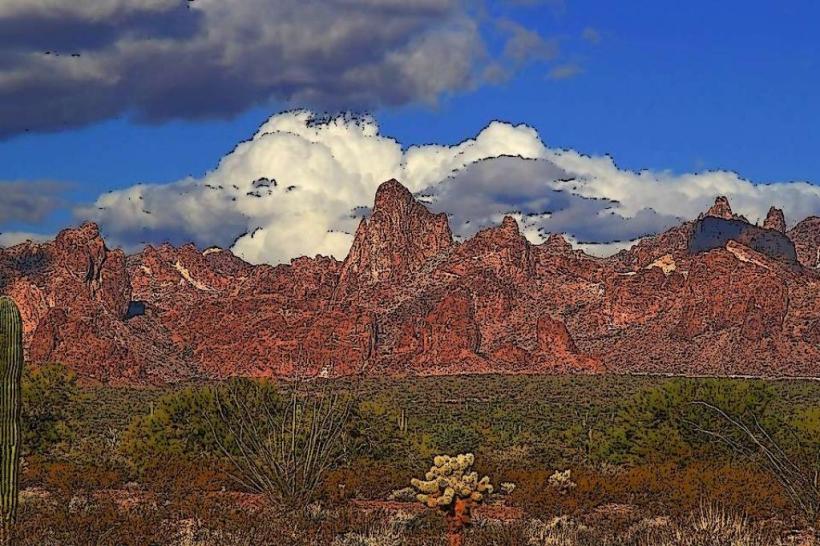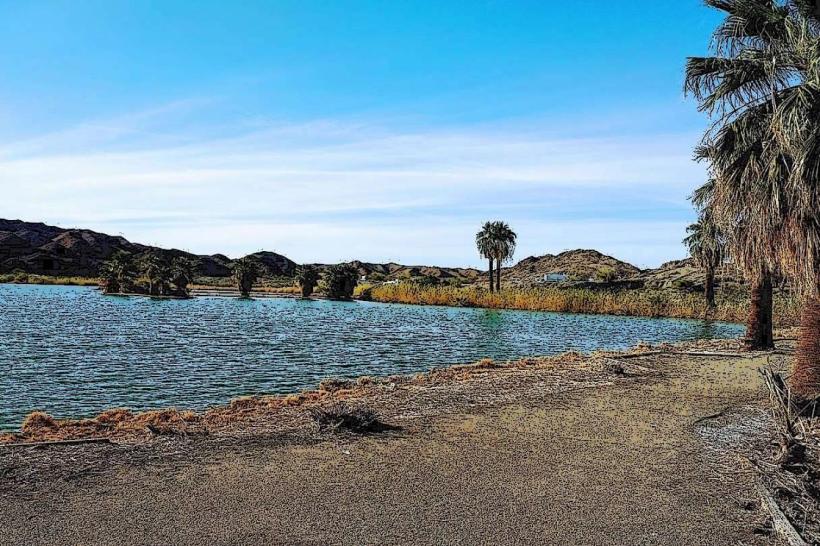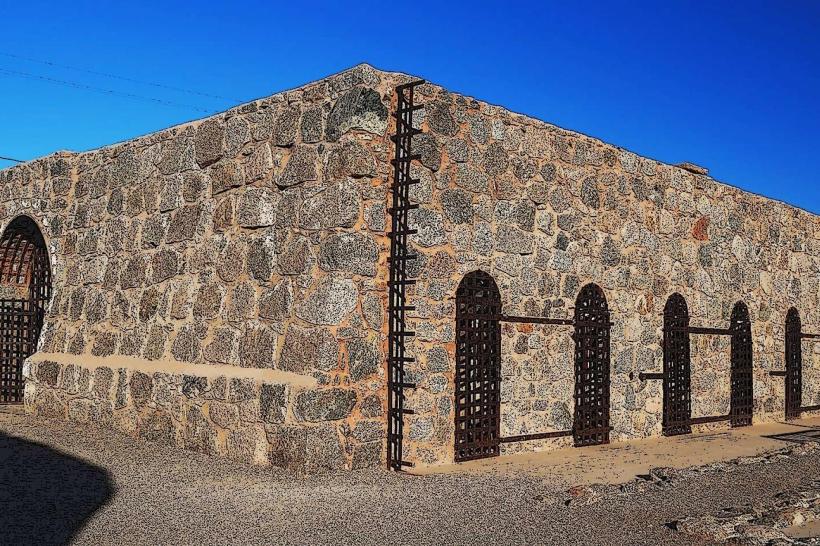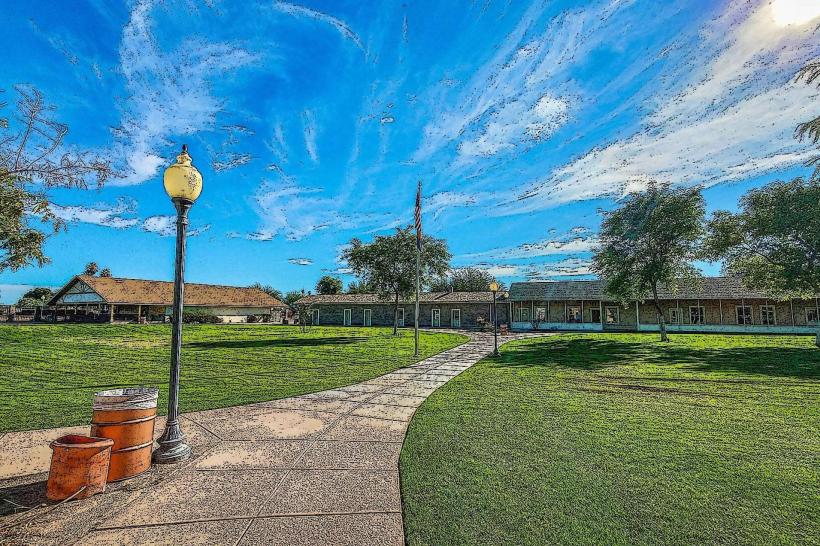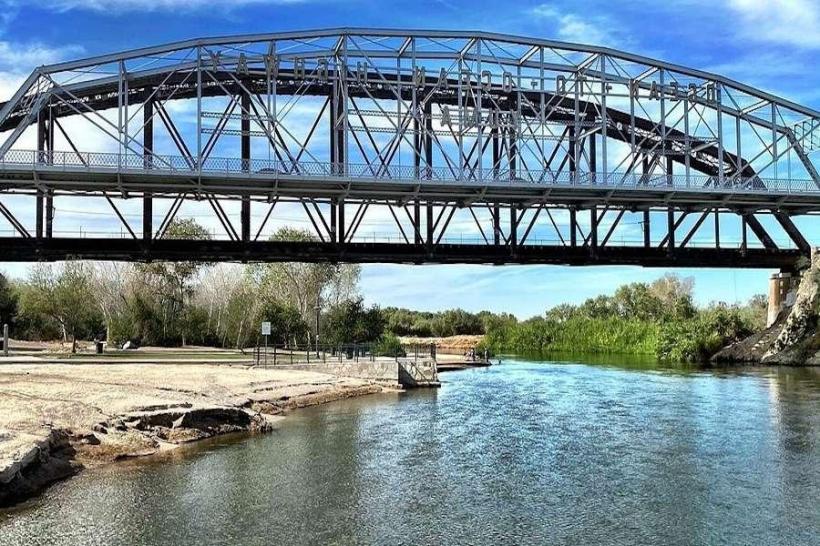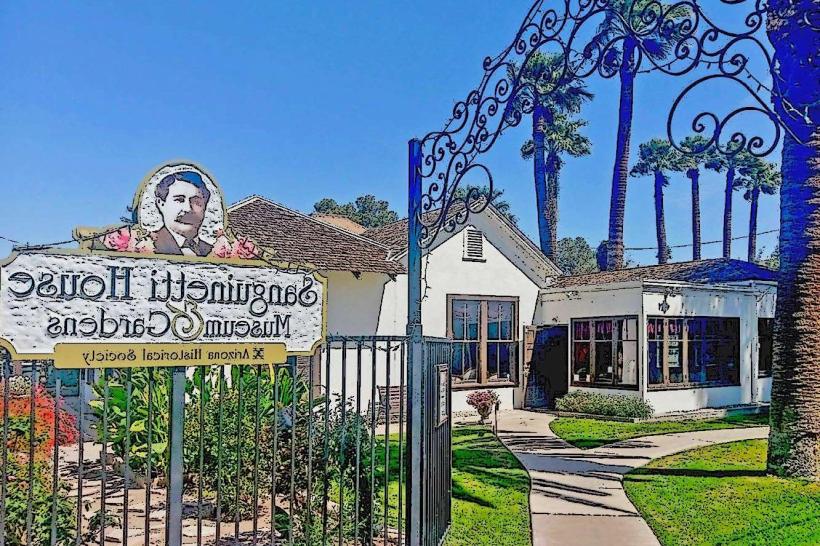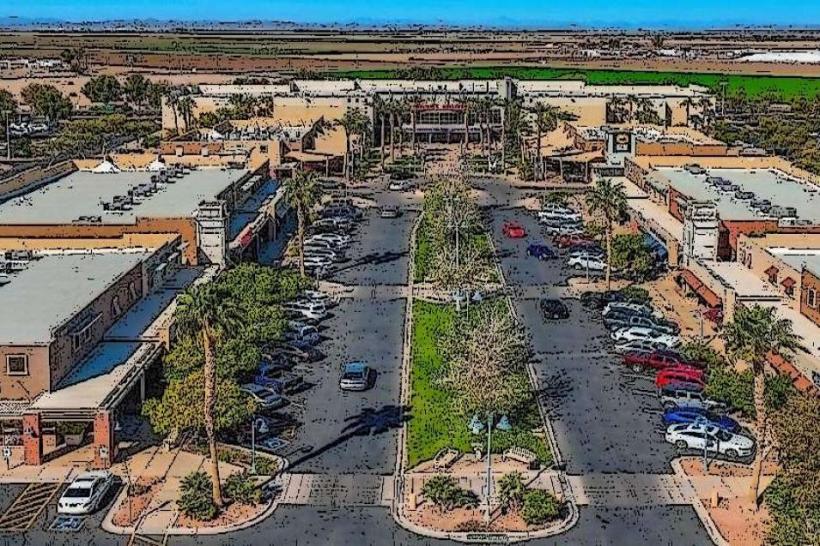Information
Landmark: East Wetlands ParkCity: Yuma
Country: USA Arizona
Continent: North America
East Wetlands Park, Yuma, USA Arizona, North America
East Wetlands Park, situated in Yuma, Arizona, is a prominent ecological and recreational landmark renowned for its extensive restoration efforts and diverse natural habitats. The park covers nearly 500 acres and lies along the Colorado River within the Yuma Crossing National Heritage Area. It represents a significant achievement in environmental reclamation, turning a once degraded landscape into a flourishing wetland ecosystem.
Ecological Restoration
Beginning in 2004, East Wetlands Park underwent a large-scale restoration initiative aimed at reviving the native wetland environment that had been severely diminished due to urban development, invasive plant species, and changes to water flow patterns. The project was a collaborative effort involving multiple stakeholders, including the City of Yuma, the Quechan Indian Tribe, the Arizona Game and Fish Department, and other environmental organizations.
The restoration process involved:
Removal of invasive species: Non-native plants that threatened native vegetation were systematically cleared to allow natural flora to reestablish.
Replanting native vegetation: Over 200,000 native trees, shrubs, and grasses were planted, including cottonwoods, willows, mesquite, and other riparian plants essential to wetland health.
Water management: Adjustments to water channels and flow were made to mimic natural flooding cycles vital for maintaining wetland conditions.
Habitat creation: Diverse microhabitats were restored or created to support a wide range of wildlife, especially species dependent on wetland environments.
Wildlife and Biodiversity
East Wetlands Park is home to an impressive variety of wildlife, serving as an important refuge in the desert environment of southwestern Arizona. The park is particularly notable as a habitat for several threatened and endangered species, including:
Ridgway’s Rail: A secretive marsh bird that depends on dense wetland vegetation for nesting and foraging.
Yellow-billed Cuckoo: A bird species that prefers cottonwood-willow riparian zones.
Numerous migratory and resident birds, such as Abert’s Towhee and Ladder-backed Woodpecker, are regularly observed here, making the park a popular destination for birdwatching enthusiasts.
Additional wildlife includes small mammals, reptiles, amphibians, and diverse aquatic life supported by the wetland ecosystem.
Recreational Features
East Wetlands Park offers visitors multiple ways to engage with the natural environment:
East Wetlands Interpretive Trail: This is a 2.8-mile loop trail that gently winds through varied wetland landscapes, including marshes, cottonwood-willow forests, and along the Colorado River. The trail is flat and accessible for walking, running, mountain biking, and horseback riding.
Birdwatching: With interpretive signage along the trail and multiple observation points, the park is a key site on the Arizona Birding Trail. Visitors can expect to see a broad range of bird species, especially during migration seasons.
Educational Opportunities: The park offers educational outreach programs and interpretive information to increase public awareness about wetland ecology, restoration efforts, and wildlife conservation.
Nature Photography and Quiet Enjoyment: The serene atmosphere, diverse flora, and abundant wildlife provide excellent opportunities for photography and peaceful contemplation.
Community and Environmental Impact
The restoration and preservation of East Wetlands Park have had substantial positive effects on the local environment and community:
Environmental Excellence Recognition: The project received prestigious awards, including the Arizona Forward Environmental Excellence Award for Natural Environmental Preservation, underscoring its success as a model for collaborative environmental restoration.
Flood Mitigation: The wetlands help absorb floodwaters, reducing potential damage to nearby urban areas and contributing to regional water management strategies.
Cultural and Tribal Significance: The park lies within the ancestral lands of the Quechan Tribe, who have actively participated in restoration efforts to maintain and protect this culturally important landscape.
Community Engagement: The park serves as a recreational asset for residents and tourists, promoting outdoor activity, environmental education, and fostering a connection to nature.
Visitor Information
Access: The park can be accessed via the Yuma Crossing Bike Path with trailheads near 50 Prison Hill Road and from downtown Yuma near 1st Street. It is well connected to other parks and trails within the Yuma Crossing National Heritage Area.
Hours: Open year-round, 24 hours a day.
Admission: Free to the public.
Facilities: The park itself has limited amenities; there are no restrooms or drinking fountains within the park boundaries. Nearby facilities can be found at adjacent parks and public spaces.
Safety Considerations: Visitors are advised to carry water, wear sun protection, and dress appropriately for the desert climate. The park’s flat trails make it suitable for visitors of all ages and fitness levels, but summer temperatures can be extreme.
Summary
East Wetlands Park is a remarkable example of how cooperative restoration efforts can transform a degraded environment into a thriving natural habitat that supports biodiversity and enriches the community. It offers valuable opportunities for outdoor recreation, wildlife observation, and environmental education while preserving essential riparian ecosystems along the Colorado River. The park’s success stands as a testament to the commitment of local agencies, tribes, and citizens to sustainable environmental stewardship.

